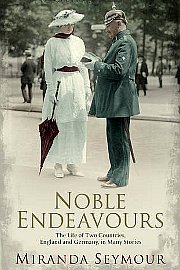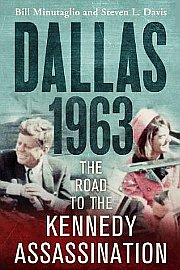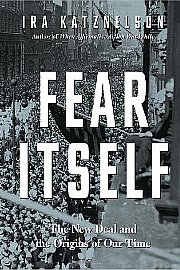 We have all manner of treats in store for you this week, but before that, a rather London-centric question. The editor of the wonderful Bibliography of British and Irish History, who is a longstanding and long-suffering colleague of mine, claims to be able to walk from Senate House to Waterloo in 12 minutes. A glorious prize awaits for anyone who can beat this and prove it…
We have all manner of treats in store for you this week, but before that, a rather London-centric question. The editor of the wonderful Bibliography of British and Irish History, who is a longstanding and long-suffering colleague of mine, claims to be able to walk from Senate House to Waterloo in 12 minutes. A glorious prize awaits for anyone who can beat this and prove it…
Don’t be distracted by this challenge, though, from checking out our FIRST EVER Reviews in History podcast. Daniel Snowman talks to Miranda Seymour (no. 1534) about her new book and her career as a historian, historical novelist and biographer.
Listen to an extract here, and please let me know if you would like to hear more of this sort of thing.
 Then we have Hugh Brogan’s review article, Fifty years since Dallas, in which he wades through (no. 1533) a pile of 50th anniversary Kennedy conspiracy theories, contrasting them with the latest piece of genuine scholarship on JFK. To judge from 2013’s newspapers, publishers’ lists, and television, the reading public is still, 50 years after, mesmerised by the assassination and its possible perpetrators.
Then we have Hugh Brogan’s review article, Fifty years since Dallas, in which he wades through (no. 1533) a pile of 50th anniversary Kennedy conspiracy theories, contrasting them with the latest piece of genuine scholarship on JFK. To judge from 2013’s newspapers, publishers’ lists, and television, the reading public is still, 50 years after, mesmerised by the assassination and its possible perpetrators.
 We move to the period of the second-most celebrated US president of the twentieth century next, as Jonathan Bell and Ira Katznelson discuss (no. 1532, with response here) the latter’s Fear Itself: The New Deal and the Origins of Our Time, a rich and enviably learned study of a formative period in the creation of the modern United States.
We move to the period of the second-most celebrated US president of the twentieth century next, as Jonathan Bell and Ira Katznelson discuss (no. 1532, with response here) the latter’s Fear Itself: The New Deal and the Origins of Our Time, a rich and enviably learned study of a formative period in the creation of the modern United States.
 Finally, we turn to Culture, Faith and Philanthropy: Londoners and Provincial Reform in Early Modern England by Joseph P. Ward. Brodie Waddell believes (no. 1531) this book provides us with a thorough and well-crafted study that demonstrates the importance of metropolitan charity in the social and cultural changes of the early modern period.
Finally, we turn to Culture, Faith and Philanthropy: Londoners and Provincial Reform in Early Modern England by Joseph P. Ward. Brodie Waddell believes (no. 1531) this book provides us with a thorough and well-crafted study that demonstrates the importance of metropolitan charity in the social and cultural changes of the early modern period.
